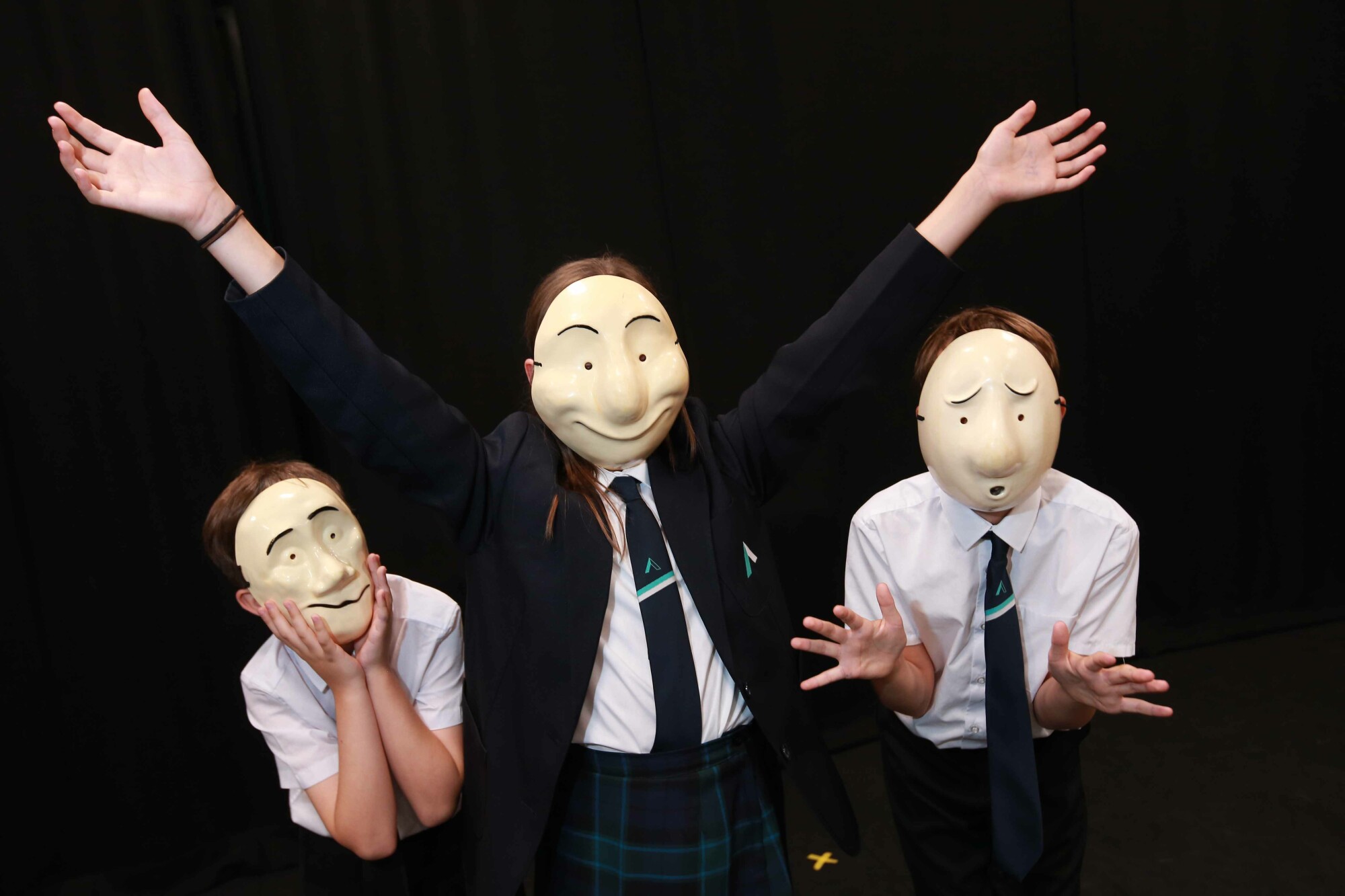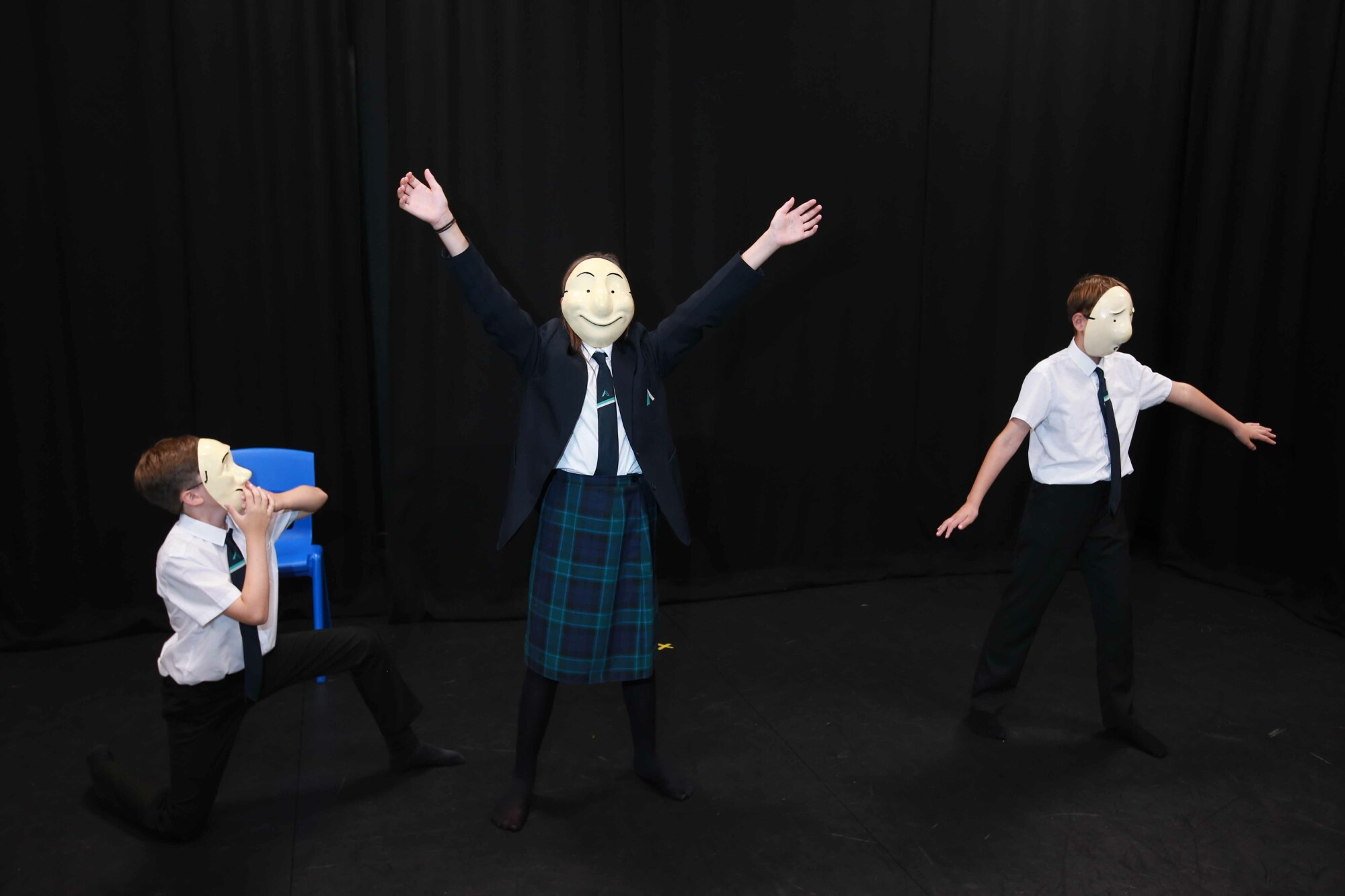DRAMA GCSE
Examination Board: AQA Course Number: 8261
What is the course about?
The value of drama in education is highly respected at The Angmering School. Drama offers students the exciting and invigorating challenge of performance and creative study. Within these experiences, students will develop skills and knowledge on theatrical style and form, practitioner approaches, live theatre analysis and vocal and physical technique. Students will find they significantly develop their self-esteem, well-being, emotional intelligence and self-awareness.
What skills and ideas will I learn?
You will learn to work creatively within groups of various sizes; to analyse and evaluate the dramatic processes of exploration, rehearsal and performance; to reflect and evaluate your practice and the work of others. You will also develop skills in self-confidence, teamwork, production process and communication. You will learn what it is to be a successful performer and how to competently reflect on drama and its impact.
How is the course assessed?
The GCSE course accredited by Ofqual offers students two live performances; one devised and one scripted. A summative exam based on theatre knowledge, a set text and a live theatre performance ends the two years study. A formative coursework log is kept for each performance.
A visiting examiner attends the scripted performance and awards a grade in the second year of study. Prior to this, mock performance exams will take place. Devised performances are marked internally and moderated externally, with a portfolio of supporting evidence.
Students who wish to take Drama into KS4 will be engaged in current Year 9 lessons, disciplined and willing to learn creatively.
What will the course allow me to progress to in the future?
Theatre Studies at A Level and/ or BTEC Level 3 Performing Arts. Students wishing to study Drama or Theatre Studies at University or go to Drama school should look to have A Level/ BTEC courses on their application. The course also develops skills for entering the world of Marketing, Media, Law, Communications and Personnel work. The ability to present, promote, work as part of a team and be creative are the essential attributes of most successful careers, skills which are developed in any drama course. Learning drama skills will enable students to survive in an increasingly competitive world.
If you would like more information about the drama courses offered, please contact Vicky Scales, Subject leader for Drama via the contact us page.
KS4 Drama Learning Journey



